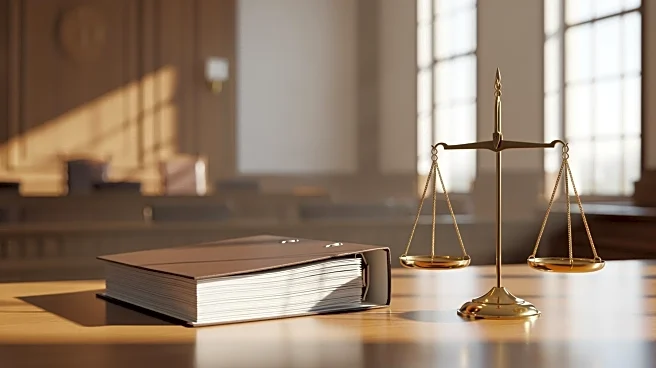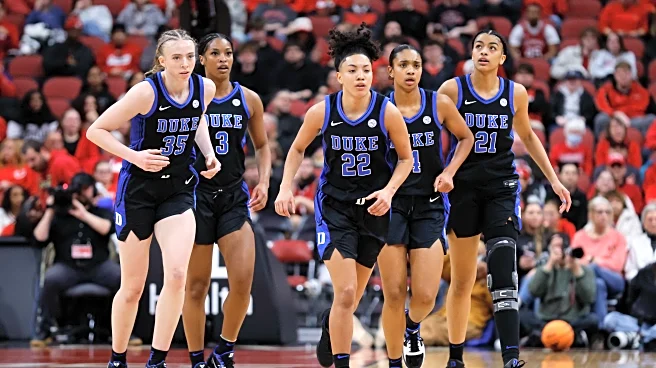Rapid Read • 8 min read
Lucian Grainge, the head of Universal Music Group (UMG), has responded to allegations made by rapper Drake regarding the devaluation of his brand. Drake's legal team has been seeking more documents related to UMG's relationship with Kendrick Lamar, alleging that UMG attempted to devalue Drake's brand through the release of Lamar's recording 'Not Like Us.' Grainge described these claims as 'farcical' and 'nonsensical,' emphasizing that UMG has invested heavily in Drake's career, including purchasing his recording catalog and music publishing rights. Grainge clarified that he was not involved in the release or promotion of 'Not Like Us,' and that his role focuses on global strategy rather than individual track releases.
AD
The dispute between Drake and UMG highlights the complexities of artist-label relationships and the significant financial investments involved. UMG's defense underscores the importance of maintaining artist brand value, which is crucial for both the label's reputation and the artist's career. The outcome of this legal battle could influence future contract negotiations and the way labels manage their artists' brands. It also reflects the broader industry dynamics where artists seek greater transparency and control over their work, potentially impacting how labels operate and negotiate with artists.
As the legal proceedings continue, the court's decision on Drake's discovery motion could set a precedent for how much access artists have to label documents in disputes. UMG's response suggests they are prepared to defend their position vigorously, which may lead to prolonged litigation. The industry will be watching closely, as the case could affect how labels handle similar disputes in the future, potentially leading to changes in contract terms and artist-label interactions.
This case also raises questions about the ethical responsibilities of music labels in managing artist relationships and the potential impact of internal strategies on public perception. The allegations, if proven, could lead to discussions about the power dynamics between artists and labels, and the need for more equitable practices in the industry. It may also prompt artists to seek more autonomy and transparency in their contracts, influencing the future landscape of music production and distribution.
AD
More Stories You Might Enjoy













